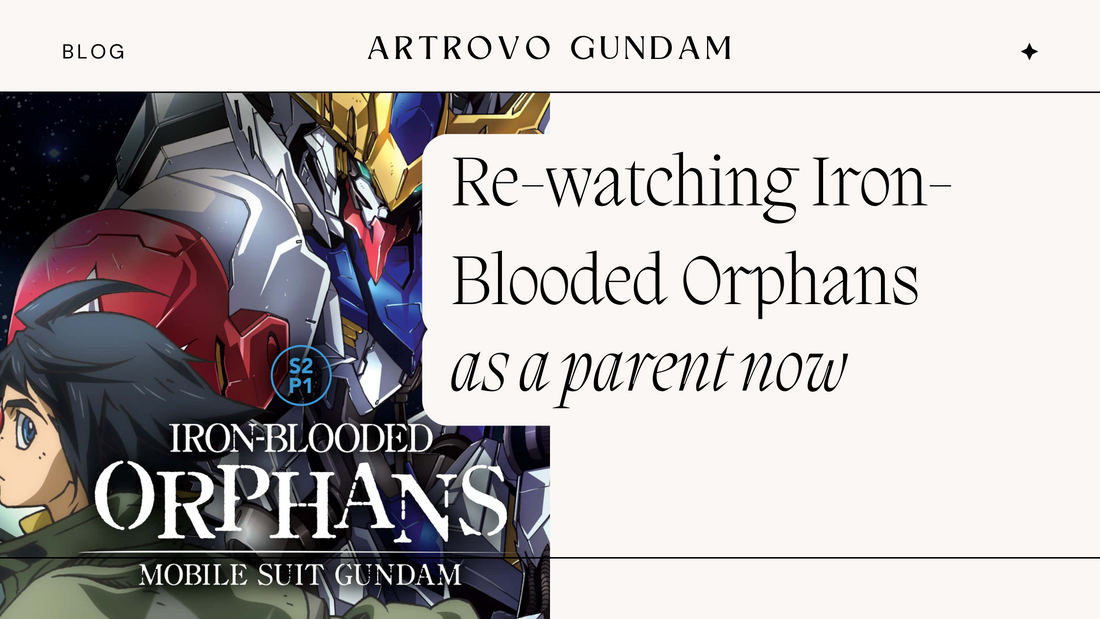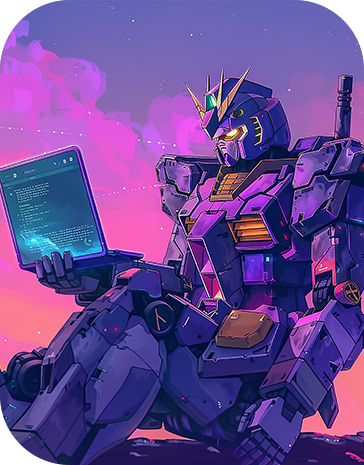When Mobile Suit Gundam: Iron-Blooded Orphans first aired in 2015, it was lauded for its gritty portrayal of war and the harrowing realities faced by child soldiers. As a young adult without children, I was captivated by the series' intense action sequences, complex characters, and the raw depiction of survival in a war-torn universe. The plight of the protagonists—children forced into the brutality of warfare—was compelling, yet somewhat abstract to me. Now, as a parent, revisiting this series has been an entirely different experience, one that has struck a deeper emotional chord and prompted profound reflections on the impact of war on the most vulnerable.
A Distant Empathy Transformed
Initially, my empathy for the characters was genuine but detached. The struggles of Mikazuki Augus, Orga Itsuka, and the other members of Tekkadan were gripping narrative elements that drove the story forward. Their battles against oppressive forces and their fight for autonomy were engaging plot points that highlighted themes of friendship, loyalty, and sacrifice. However, lacking personal experience with parenthood, the full weight of their suffering did not resonate as intensely.
Becoming a parent has fundamentally altered my perception of the series. The children in Iron-Blooded Orphans are stripped of their innocence and thrust into unimaginable circumstances. Watching these young characters navigate a world rife with violence and exploitation now evokes a visceral reaction. The abstract concept of child soldiers has transformed into a palpable fear and sorrow, knowing that real children in our world endure similar fates.
The Harsh Realities of War Through a Parental Lens
The series does not shy away from depicting the psychological and physical toll of war on children. Scenes that once seemed like dramatic storytelling now elicit a profound sense of anguish. The characters' loss of childhood, the burden of responsibilities far beyond their years, and the constant threat to their lives are portrayed with unflinching honesty.
As a parent, I cannot help but imagine my own children in such scenarios, a thought that is both terrifying and heartbreaking. The moments where the characters show glimpses of their youthful innocence—only to have it overshadowed by the demands of survival—underscore the tragedy of their circumstances. The series poignantly illustrates how war dehumanizes and robs children of their fundamental right to a safe and nurturing environment.
Heightened Emotional Resonance
One of the most striking aspects of re-watching Iron-Blooded Orphans as a parent is the heightened emotional resonance of the characters' relationships. The bonds between the members of Tekkadan take on new meaning. Their camaraderie is not just a byproduct of shared hardship but a surrogate family structure born out of necessity. Orga's role as a leader resembles that of an elder sibling or even a parental figure, bearing the weight of safeguarding his comrades.
The series also explores themes of exploitation and manipulation of children by adult figures in positions of power. This dynamic is particularly distressing from a parental perspective. The characters' vulnerability is exacerbated by the adults who use them as tools for their own gain, highlighting a profound betrayal of trust and responsibility.
A Call to Reflection and Awareness
Iron-Blooded Orphans serves as a stark reminder of the real-world issues surrounding child soldiers and the effects of armed conflict on children globally. As a parent, the series has prompted me to engage more deeply with my children and cherish them even more. I wish to never explain the cruelty of war and conflict, but I find it important now to have an open discussion about the realities of conflict when they are old enough.
The emotional impact of the series is a testament to its powerful storytelling and its ability to shed light on uncomfortable truths. It challenges viewers to confront the harsh realities that many prefer to ignore, using the lens of science fiction to mirror societal issues.
Conclusion
Revisiting Mobile Suit Gundam: Iron-Blooded Orphans after becoming a parent has been an eye-opening experience. The series' depiction of the toll war takes on children resonates more profoundly, evoking empathy that is both personal and intense. It underscores the importance of storytelling in fostering understanding and compassion for those who suffer in ways that we, in more privileged circumstances, may never fully comprehend.
The transformation in my perception of the series highlights how personal experiences, such as parenthood, can deepen our connection to art and media. Iron-Blooded Orphans remains a significant work within the Gundam franchise, not just for its action and narrative, but for its unflinching exploration of the loss of innocence and the resilience of the human spirit in the face of adversity.
As both a fan and a parent, I now appreciate the series on a more profound level, recognizing its contribution to important conversations about war, child exploitation, and the enduring need to protect the most vulnerable among us.
For more insights and discussions on Gundam series and model kits, visit Artrovo Gundam. Join our community of fans and collectors as we delve into the rich universe of Gundam and its impact on audiences around the world.





